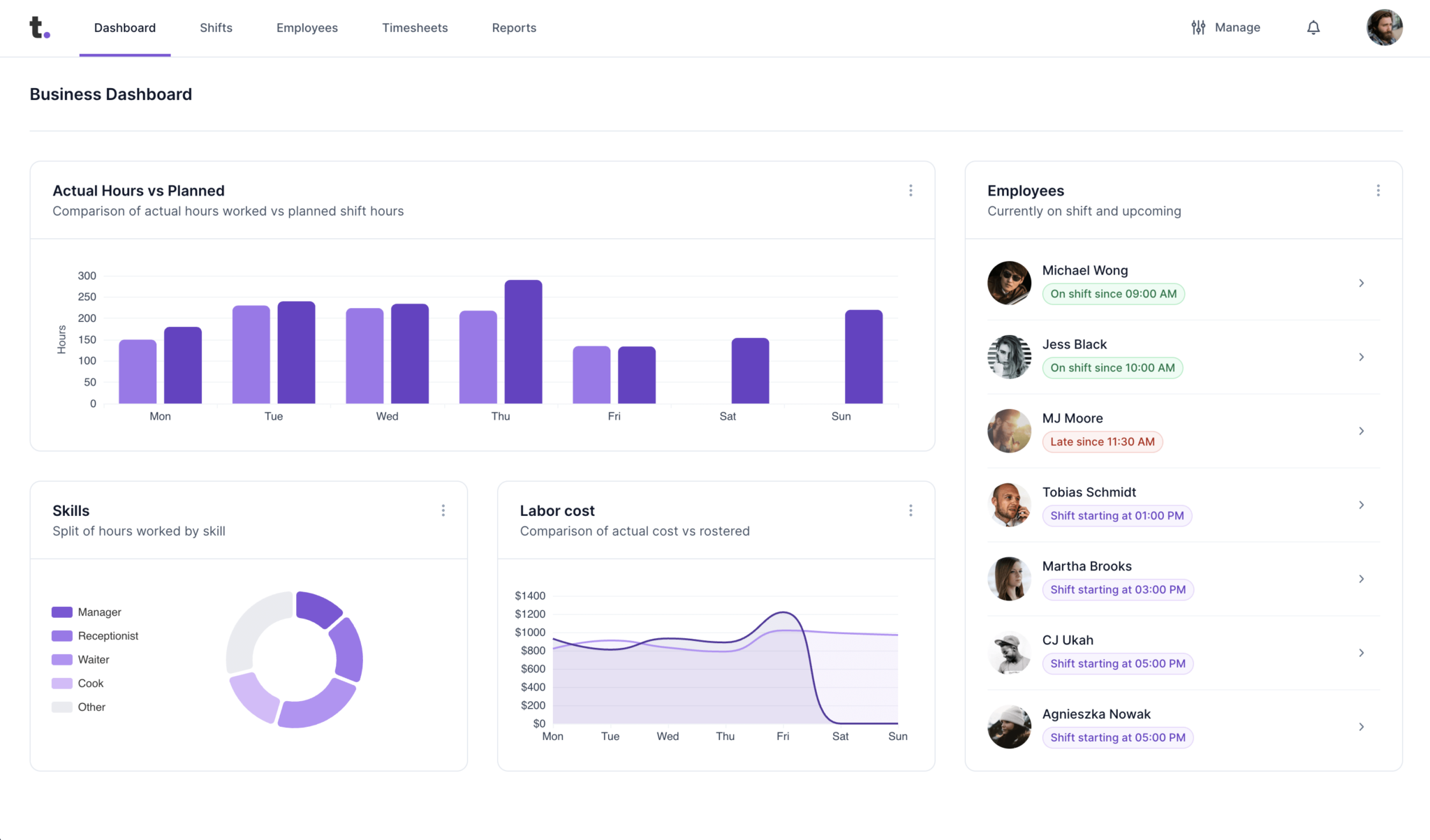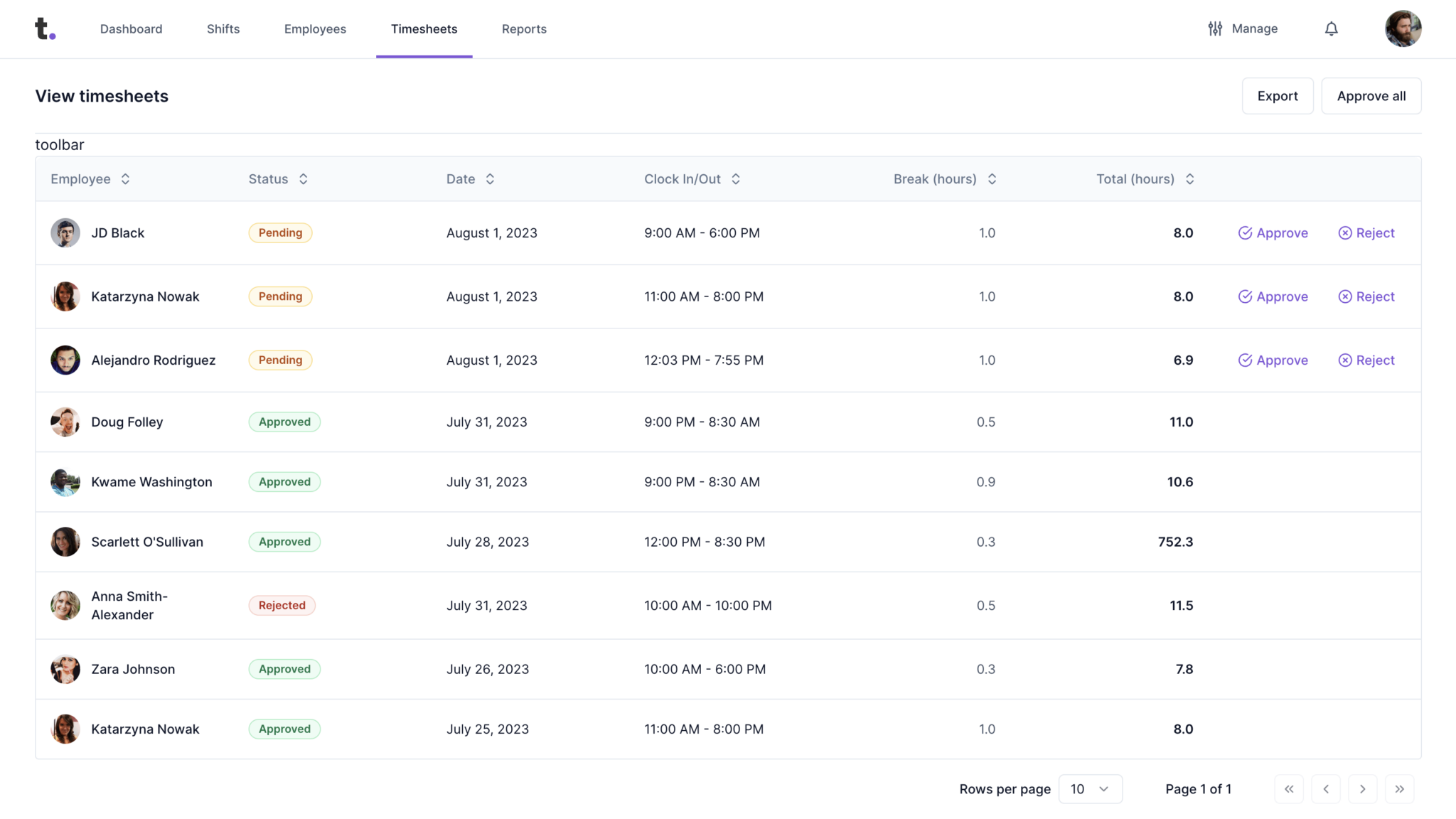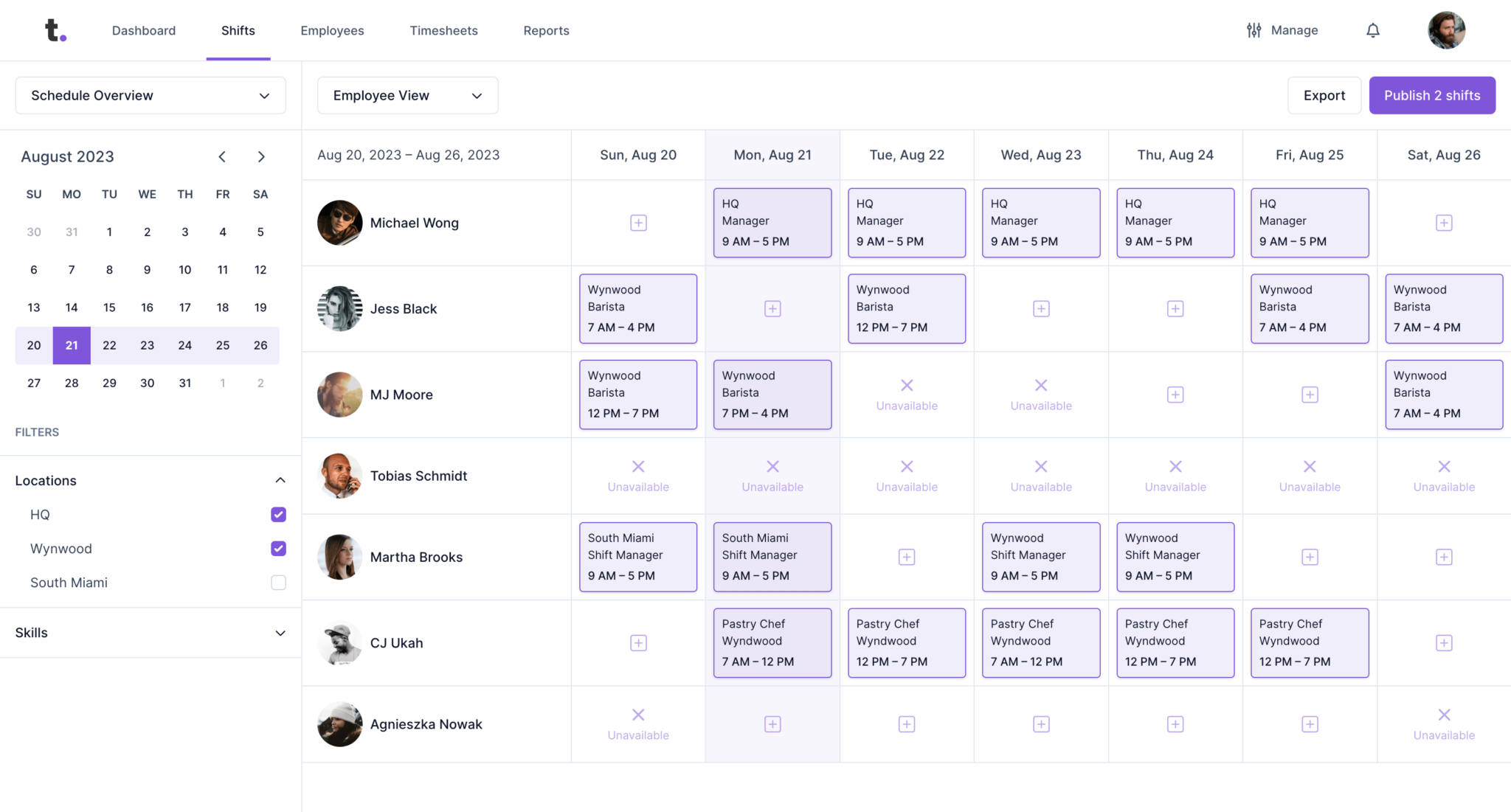Choosing Employee Scheduling Software for Healthcare Clinics
In the healthcare industry, the significance of scheduling extends beyond routine organization. It's about aligning staff availability with patient care demands in a way that maximizes resources and responsiveness. Healthcare scheduling software plays a crucial role in this process, offering a robust system that is not just efficient, but also flexible. Such software needs to be capable of adapting to the ever-changing landscape of healthcare demands, ensuring that medical facilities can optimize their resources while providing timely and quality care to patients.
Research, including a study by the National Center for Biotechnology Information, shows that well-structured scheduling directly improves patient outcomes. In healthcare, this means more than operational efficiency; it's about timely patient care and having the right staff when needed, essential for patient satisfaction and successful treatments.
Addressing healthcare scheduling challenges, from fluctuating patient numbers to coordinating a diverse team, calls for effective scheduling solutions. Timewave is our response to these varied needs across the industry, from clinics to hospitals. It's engineered to enhance both patient care and staff management, turning complex scheduling into a streamlined process that benefits everyone involved.

The Challenges of Scheduling in Healthcare
In healthcare settings, scheduling challenges mainly include handling unpredictable patient volumes and maintaining staff balance. Fluctuating patient numbers make it hard to plan staff schedules, leading to either too few or too many staff on duty. Too few staff increases workload and stress, while too many staff can be costly and inefficient. Complying with labor laws and healthcare regulations also complicates scheduling.
Additionally, healthcare must quickly adapt to emergencies or sudden changes, like a pandemic, requiring flexible scheduling systems. Limited resources, like equipment and specialized staff, further complicate planning. Efficiently managing these while considering staff well-being is crucial for good patient care and staff morale.
Inefficient scheduling in healthcare practices can have significant negative impacts. It often leads to extended wait times for patients, which is linked to poorer health outcomes, increased morbidity, and mortality. Such delays can particularly affect those with critical health conditions, where timely care is essential. For healthcare staff, inefficient scheduling can result in uneven workloads, leading to increased stress, job dissatisfaction, and higher risks of burnout. This can further exacerbate staffing challenges, as overworked healthcare professionals may seek employment elsewhere, or their performance might decline, impacting patient care quality. Additionally, inefficient scheduling can lead to underutilization of healthcare facilities and resources, causing financial strain on the healthcare system. Optimizing scheduling practices is thus vital for both improving patient outcomes and maintaining a healthy, effective healthcare workforce.
Key Features of Healthcare Scheduling Software
Staff scheduling software in healthcare must effectively manage staff availability and shifts. It needs to account for each staff member's qualifications, preferences, and leave, ensuring shifts are allocated fairly and efficiently. The system should be adaptable to sudden changes, helping maintain continuous patient care and staff balance.

Compliance with healthcare regulations and labor laws is critical. The software should monitor shift lengths to prevent staff fatigue, uphold union agreements, and maintain proper staff-to-patient ratios. Automatic alerts for potential compliance issues are essential to prevent legal challenges and ensure a safe workplace.
Integration with other healthcare systems, such as Electronic Health Records (EHR), is necessary for holistic management. The software should be easily accessible on various devices, allowing staff to check and manage their schedules conveniently, thereby improving communication and efficiency in healthcare operations.
Modernizing Scheduling in Healthcare Practices
Transitioning to online scheduling like Timewave streamlines the scheduling process, making it more efficient than traditional methods. It clearly displays staff availability, simplifies shift swaps, and manages leave requests, reducing the administrative workload. This allows healthcare staff to focus more on patient care, enhancing clinic efficiency.
Timewave improves communication by giving staff access to their schedules online, reducing scheduling errors and misunderstandings. It allows for quick and easy management of shift changes, accommodating the dynamic needs of healthcare environments and enhancing operational flexibility.
Online scheduling with Timewave can lead to increased staff satisfaction. By providing a transparent and fair scheduling process and respecting personal preferences, it helps maintain a better work-life balance for staff. This can lead to improved job satisfaction, higher engagement levels, and ultimately, better patient care.
Hospital Staff Scheduling Software: A Closer Look
Hospitals require 24/7 staffing across various departments. Coordinating a diverse workforce and managing shifts to ensure emergency readiness and patient care is a complex task. Hospital staff scheduling software must be robust and adaptable to these needs.
Hospital schedules must also quickly adapt to changing patient volumes and emergencies. The ability to reallocate staff rapidly is essential. Additionally, hospitals must comply with labor laws and prevent staff fatigue, especially in critical care roles. Effective scheduling tools are crucial for maintaining these standards, ensuring staff well-being and patient safety.
Timewave addresses the unique demands of hospital staff scheduling with specialized features that cater to the dynamic and complex nature of healthcare environments. Our system is designed to manage 24/7 staffing across various departments, ensuring continuous patient care. Timewave's adaptability is key, allowing for real-time adjustments in response to sudden changes in patient volumes or staffing needs, a critical feature during health crises. Additionally, it ensures compliance with labor laws and manages staff workload, helping to prevent burnout. By integrating these features, Timewave effectively supports hospitals in maintaining efficient operations while prioritizing both patient care and staff well-being.

Timewave is a platform Tailored for Healthcare Scheduling
Timewave is a healthcare scheduling solution that simplifies staff management in hospitals. It offers a 24/7 scheduling system tailored for the specific needs of various departments, streamlining the process of creating and adjusting schedules.
The software is adaptable, handling sudden staffing changes due to emergencies or absences. Timewave's real-time adjustments ensure continuous patient care, essential in healthcare's unpredictable environment.
Timewave also complies with labor laws and healthcare regulations, focusing on preventing staff burnout and maintaining a healthy work-life balance. This feature is crucial in high-stress healthcare settings.
Finally, Timewave enhances communication and transparency in scheduling. It allows staff to remotely access and manage their schedules, facilitating easy shift changes and leave requests, thus improving staff satisfaction.
Trusted by Leading Healthcare Clinics
Timewave is increasingly being adopted by healthcare providers, from local clinics to larger healthcare systems. Its usefulness in managing a range of scheduling needs and streamlining staff management is becoming more recognized. The platform's adaptability and user-friendly interface contribute to its growing appeal, offering a practical solution for improving healthcare scheduling efficiencies.
Healthcare's Choice for Staff Scheduling


Setting Up a Healthcare Clinic on Timewave
Create a free account. Getting started with Timewave is easy and free. Head over to the registration form and fill in your clinic details to create an account.
Set up your clinic in the system. After your first login, you’ll need to add basic information about your clinic, like multiple locations, staff members, their roles, and wages.
Create and assign shifts. Use Timewave’s web or mobile platform to schedule your staff.
Track timesheets and reports. Employees can clock in and out using the website, mobile app, or QR code iPad app. Timewave generates timesheets and reports for review.
Essential for Healthcare Operations
Choosing the right scheduling software is a key decision for healthcare facilities. It directly impacts everything from patient care to staff satisfaction. An effective system improves patient outcomes and reduces staff burnout, underlining the importance of this decision for clinic and hospital operations.Timewave's web platform is purpose-built to address these critical needs in healthcare. Offering solutions for 24/7 staffing and ensuring compliance with labor laws, it stands as an indispensable tool. Timewave goes beyond merely meeting requirements; it's crafted to improve the efficiency and effectiveness of modern healthcare practices.